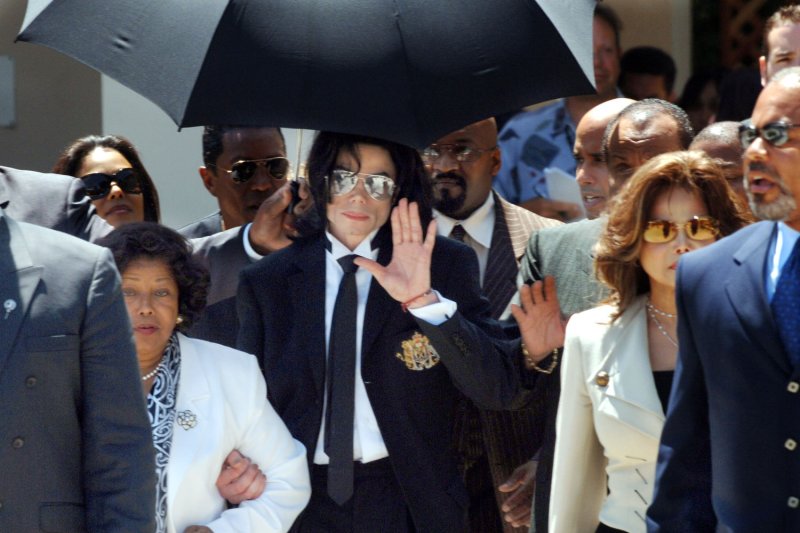US pop icon Michael Jackson waves to his fans as he leaves the Santa Barbara County Courthouse after being acquitted of all charges in his child molestation trial in Santa Maria, CA on June 13, 2005. A jury cleared Jackson of child sex abuse and other charges that could have seen him jailed for more than 18 years at the end of a sensational 14 week trial. Photo by Jim Ruymen/UPI |
License Photo
LOS ANGELES, May 28 (UPI) -- A choreographer who once testified on behalf of the king of pop has had his suit against Michael Jackson's estate thrown out by a Los Angeles judge Tuesday.
Wade Robson, 32, claimed in 2013 that he indeed was molested by Jackson as a child and it took therapy to realize it. But LA Superior Court Judge Mitchell Beckloff decided that Robson took too long to file a lawsuit against Jackson's estate and dismissed the case.
Robson filed the suit four years after Michael Jackson's death.
According to My News LA, his lawyer, Maryann Marzano, said in April that there was no "ah, ha" moment where Robson realized Jackson had treated him inappropriately, that he couldn't file a lawsuit against him because he had been "brainwashed into believing it was consensual."
But Jonathan Steinsapir, the attorney representing the Jackson estate, argued that time limits must be enforced so others cannot repeatedly continue to file similar cases in the coming years.
"Even assuming the plaintiff's position is correct...both parties before the court recognize that any such (impediment) exists only for a reasonable time period after any violence, intimidation or threatening conduct by the decedent ceases," Judge Beckloff said.















